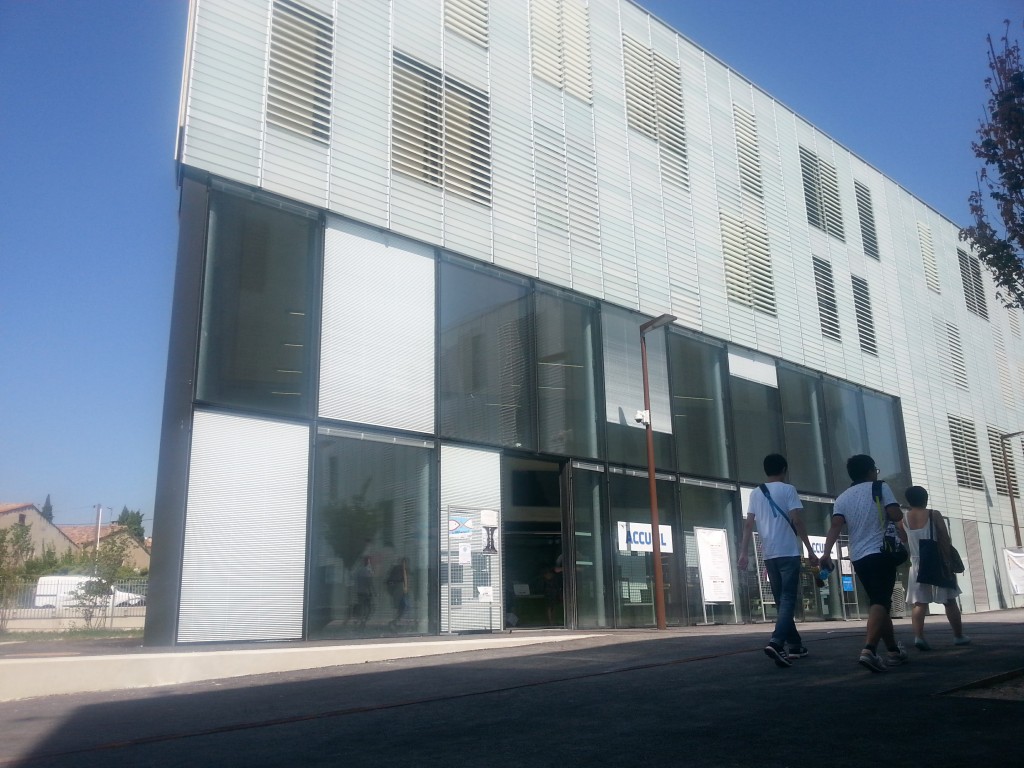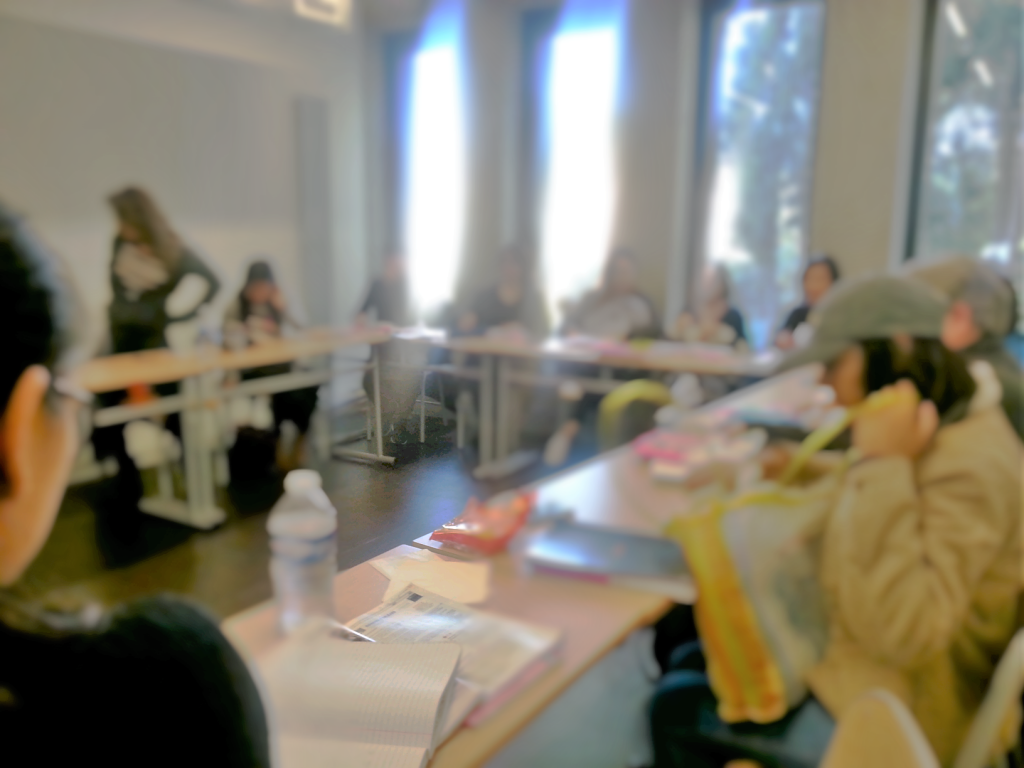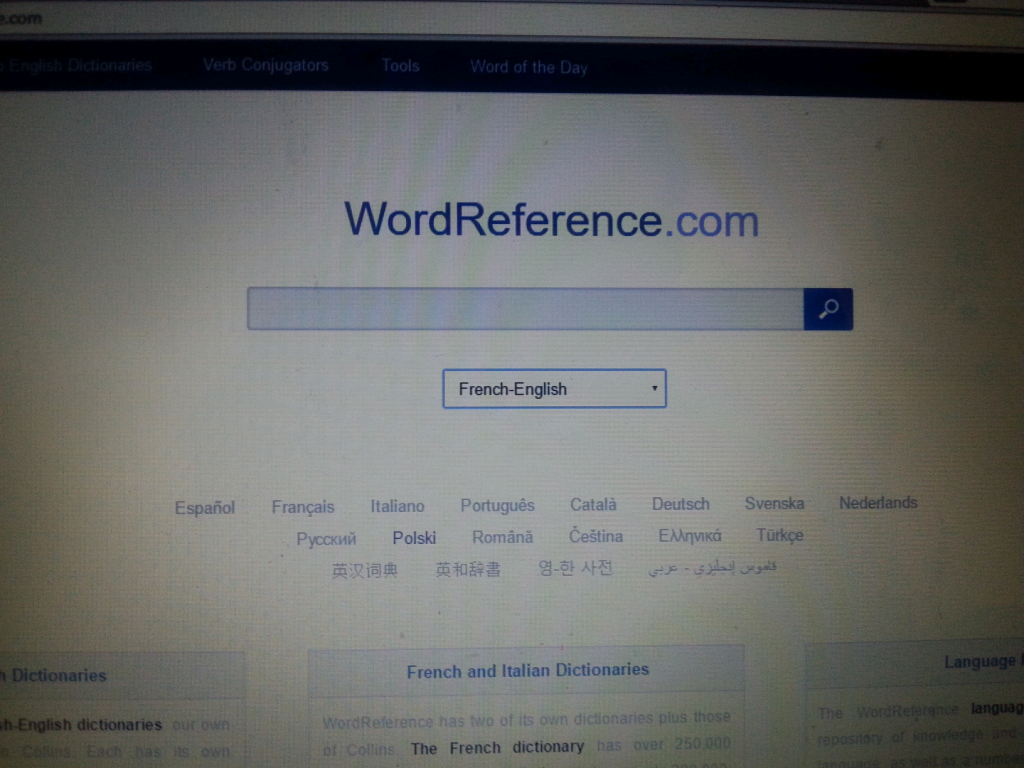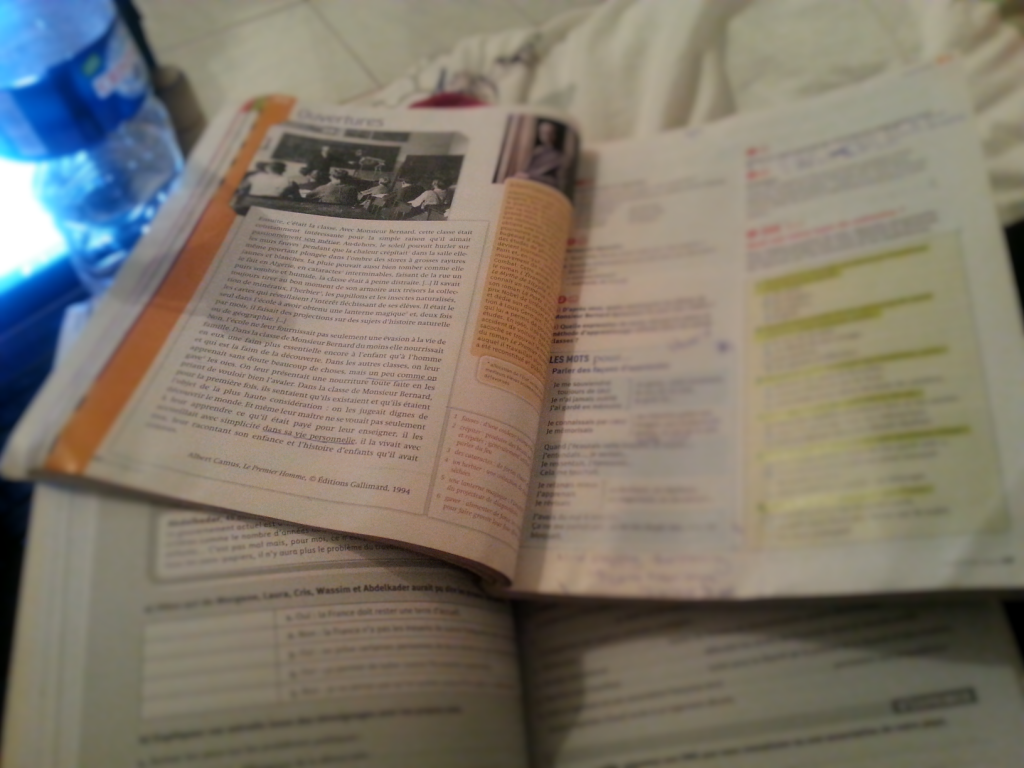Studying abroad doesn’t have to be a terrifying process. Especially if your study abroad program isn't directly through your school like mine is. Here’s how my process went:
Preparation
Once I found the program that would provide the classes I needed, in the semester that I wanted, I applied. The process of getting placed in the correct level happened in multiple steps. First, there was a written part of the placement exam that I did before leaving the U.S. You can prepare for it as much as you want by reviewing vocabulary and proper sentence structure. I timed myself for the exam and showed off as much as I could.
When I actually got to France, I took the oral exam and was placed into the appropriate level! For the oral exam, I just talked to the proctor about my exposure to the French language (in French, of course) and told him more about myself. It was very low pressure.
 |
| This is one of the buildings on campus. Pretty cool, huh? |
In class
I’m in Low-Intermediate French which is the equivalent in France to B1-A. My main language class meets Monday through Thursday with varying meeting times, and I don't have any electives on Fridays. This means more time for traveling on the weekends! The workload is not too heavy, but it is consistent. We've gone over cultural norms in France using some grammar structures that I have learned about and others that are new to me. What I do appreciate is that we go over all the corrections in class which helps with learning the correct way to write and speak French.
I also have a phonetics class that breaks down the pronunciation of letters and words. Although this is a required class for my program, I would recommend to everyone to take a phonetics class in the language that you are studying. You do need people to understand what you are saying, right? Phonetics helps with that.
 |
| Just a regular day in my three-hour-long class. |
My only elective is called Francais Des Affaires, which is a French business and geopolitics class. There are several other electives like French Regions, French Literature and Drama course, but this one caught my attention from the beginning. It is challenging, but super interesting. Within my group, we each had to present on a different aspect of a French business in front the class for 15 mins... in French. Talk about being thrown out of your comfort zone! Other than that, we talk about the student events the current news that affect the economy, social structure, and the global community.
 |
| This website has been an incredible help to me for translating to and from French! |
My first week of classes was challenging because I had to adjust to hearing my professors’ ways of communicating in French. Some talk faster than others and I was translating at speeds I wasn't used to. So when one of my professors called on me to give my personal thoughts on the presidential election, you can imagine that I had some issues expressing all of my thoughts and presenting them concisely in French.
Being here has helped refine my French. I know I won't be at the exact level I thought I’d be at when I leave, but I’ll keep learning even when I get back to the States. I’ll keep supplementing my learning with Tv5monde, RFI radio, Duolingo, Babel,books, and of course, YouTube.
 |
| Gotta make sure I finish my homework! |
 |
| Also, read a book that interests you in French. That way you are learning vocabulary and writing nuances that will improve your understanding of the language. #Chinuaachebe #toutseffondre #thingsfallapart |
Eberechi O. is the Fall 2016 CEA MOJO in Aix-en-Provence, France. She is currently a senior studying International Studies at University of Michigan.








